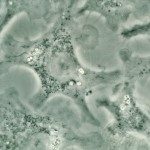Link to Pubmed [PMID] – 17464119
Contrib Nephrol 2007;156:101-11
During sepsis, the anti-infectious response is closely linked to an overwhelming inflammatory process. The latter is illustrated by the presence in plasma of numerous inflammatory cytokines, markers of cellular stress (e.g. high mobility group box-1 protein), complement-derived compounds (e.g. anaphylatoxin C5a), lipid mediators, and activated coagulation factors. All mediators contribute in synergy to tissue injury, organ dysfunction, and possibly to lethality. To dampen this overzealous process, a counter-regulatory loop is initiated. The anti-inflammatory counterpart involves few anti-inflammatory cytokines (e.g. interleukin-10, transforming growth factor-beta), numerous neuromediators (e.g. adrenalin, acetylcholine), and some other factors (e.g. heat shock proteins, ligand of TREM-2, adenosine). These mediators modify the immune status of circulating leukocytes as illustrated by their decreased cell-surface expression of HLA-DR or their reduced ex vivo pro-inflammatory cytokine production in response to Toll-like receptor agonists (e.g. endotoxin, lipoproteins). However, circulating leukocytes remain responsive to whole bacteria and produce normal or even enhanced levels of anti-inflammatory cytokines. Thus, the immune dysregulation observed in sepsis corresponds to a reprogramming of circulating leukocytes.

